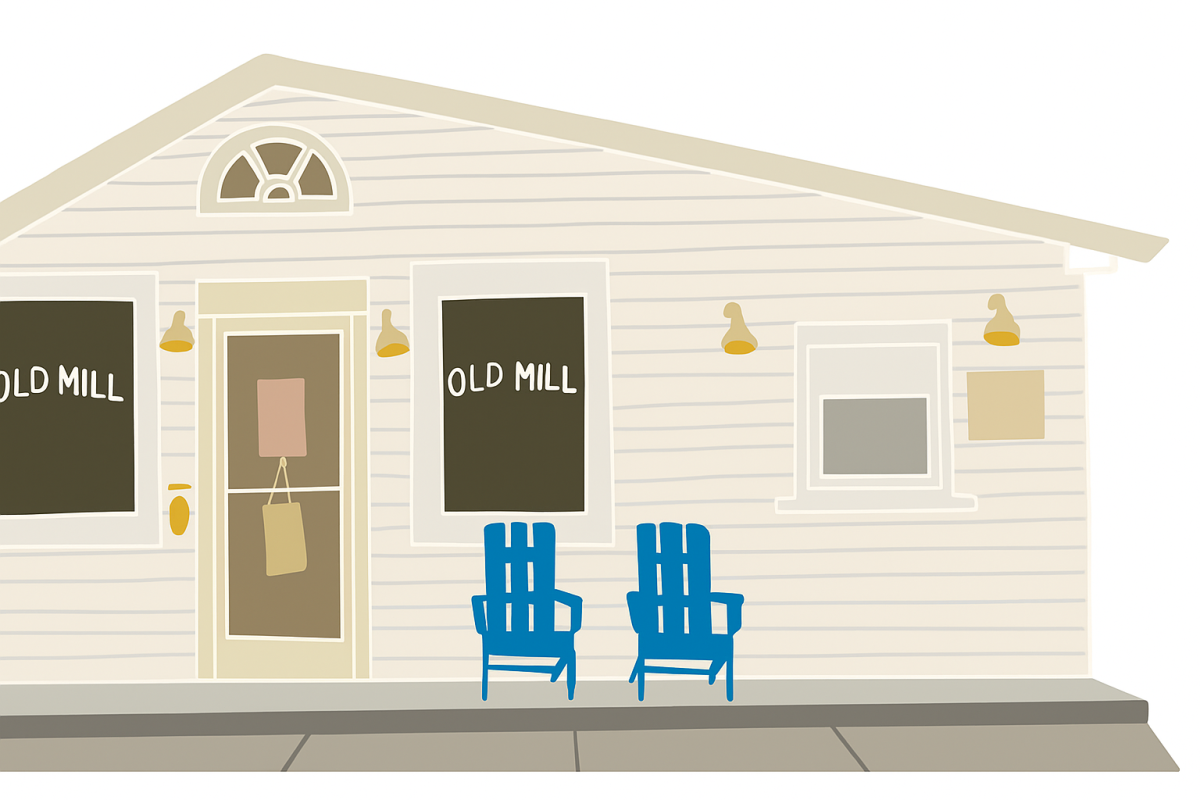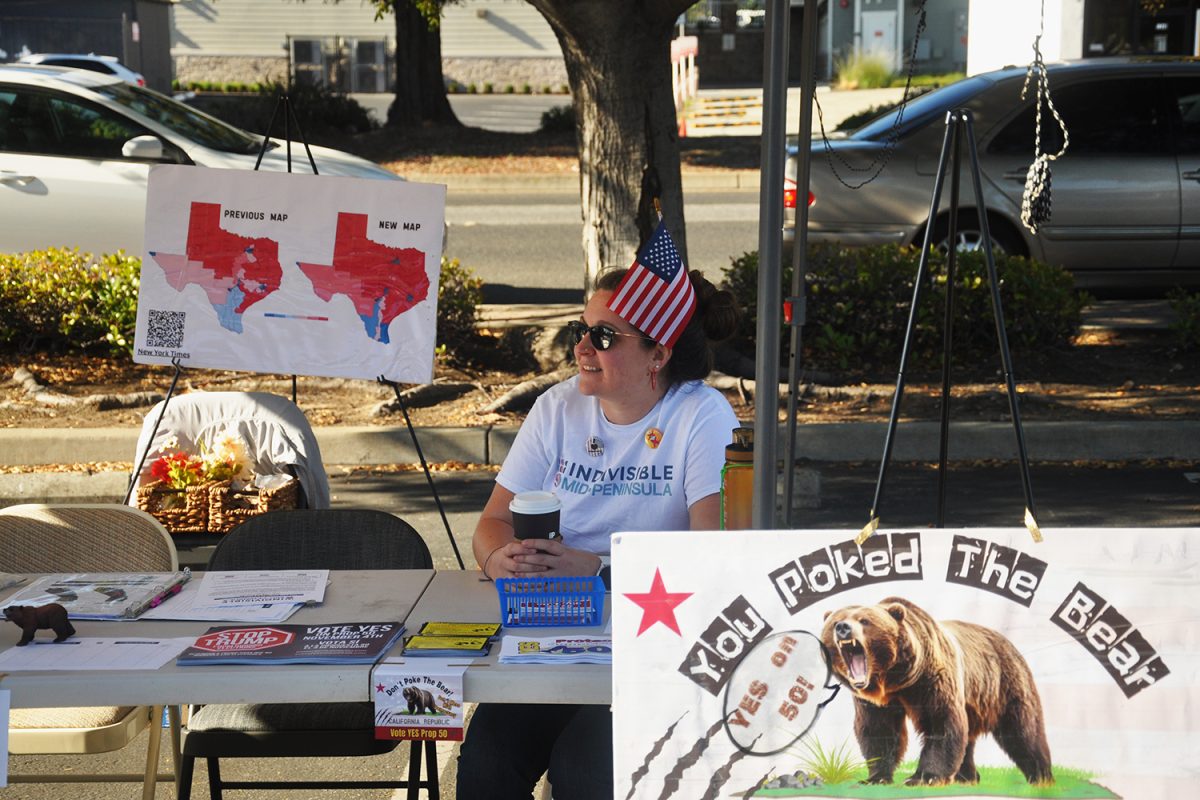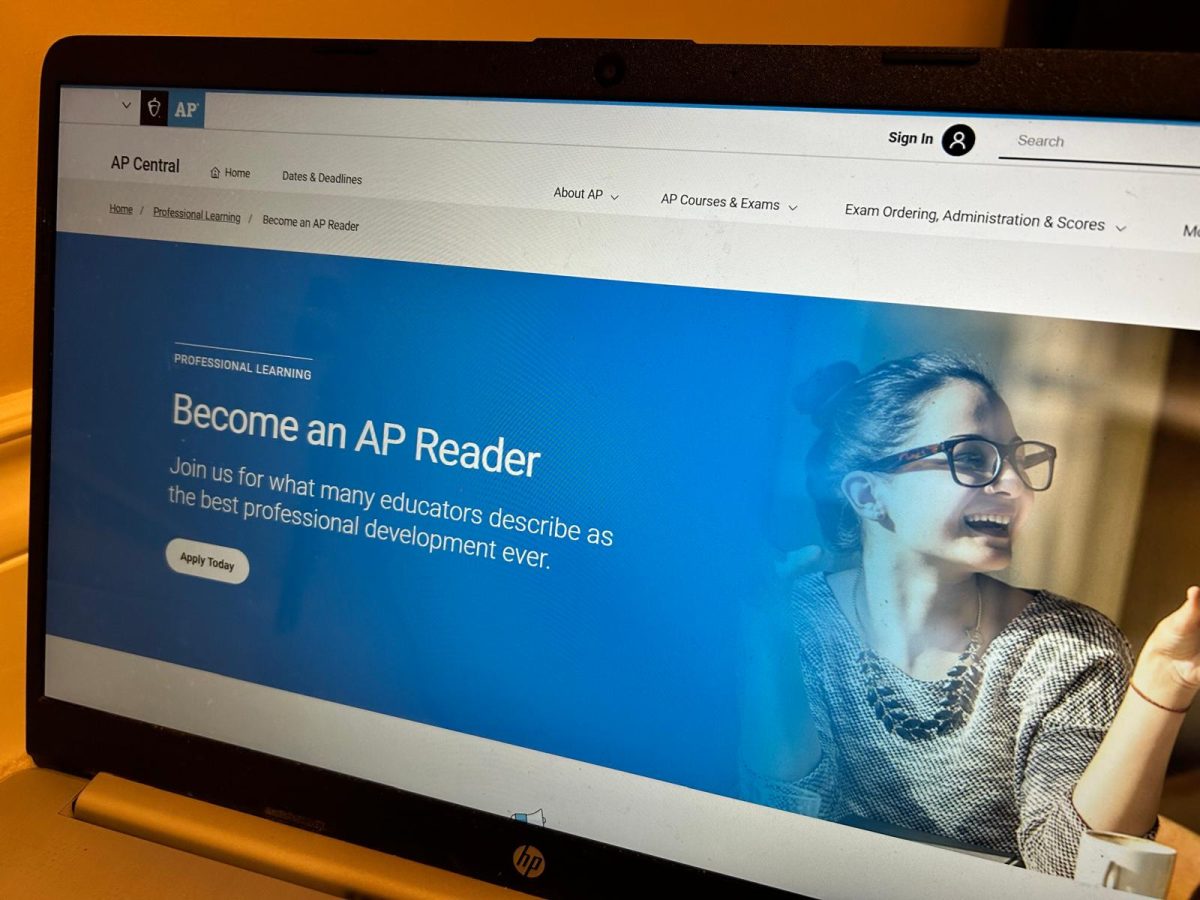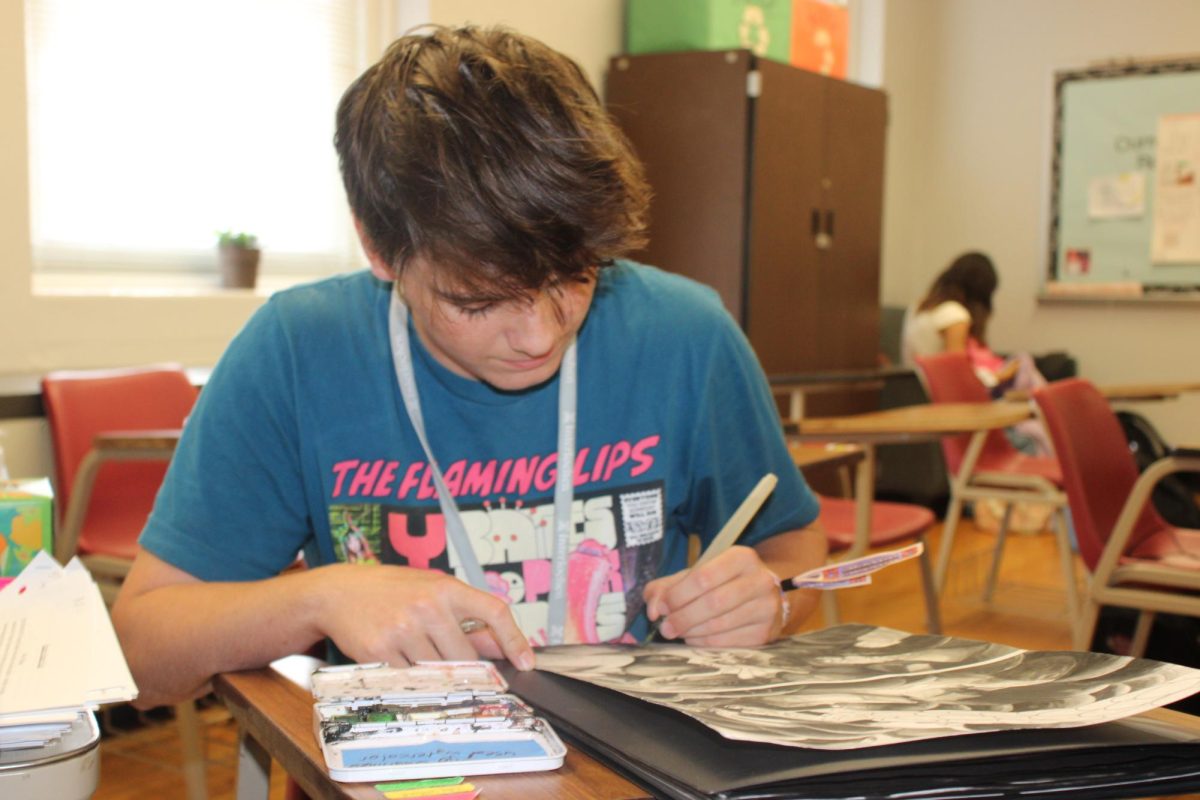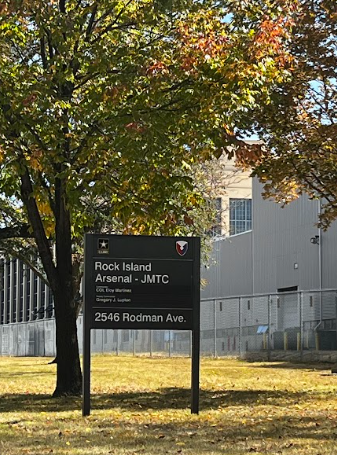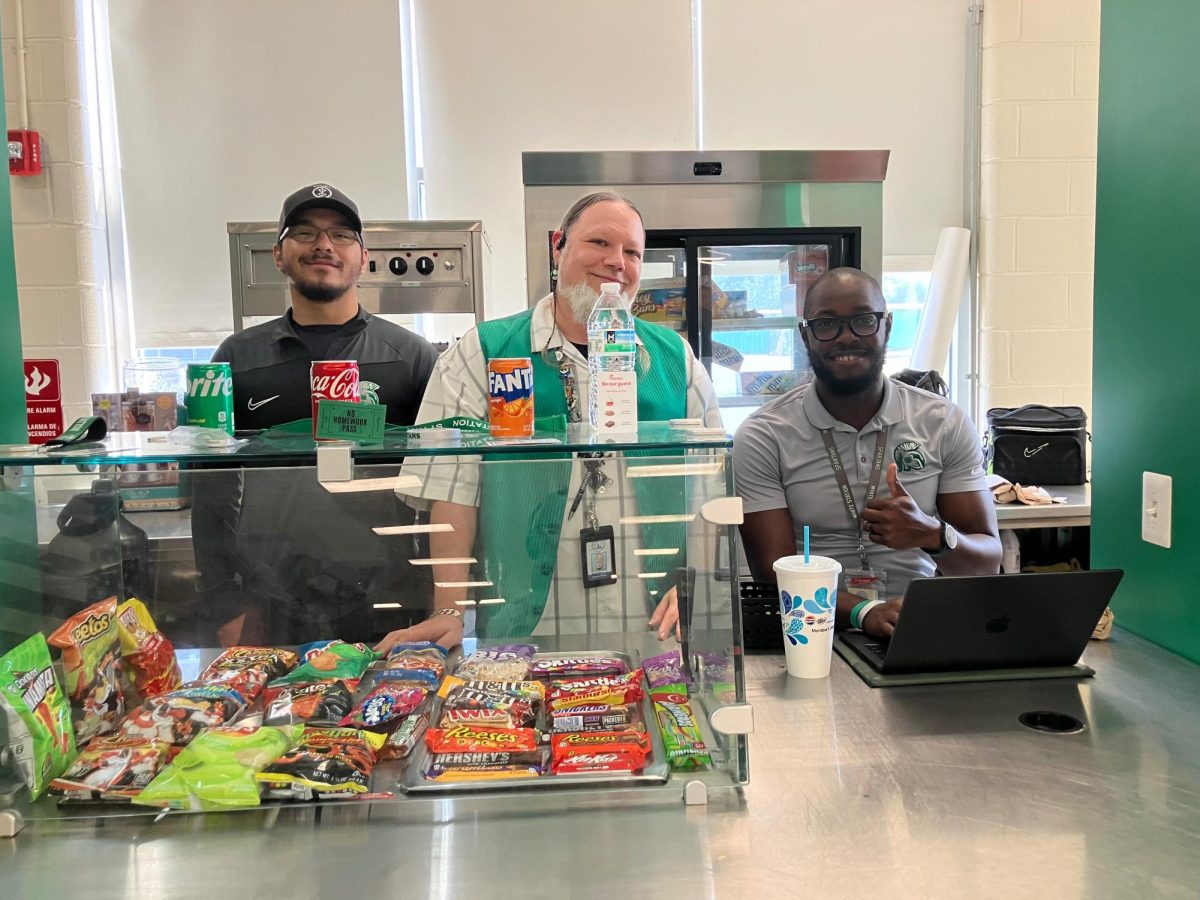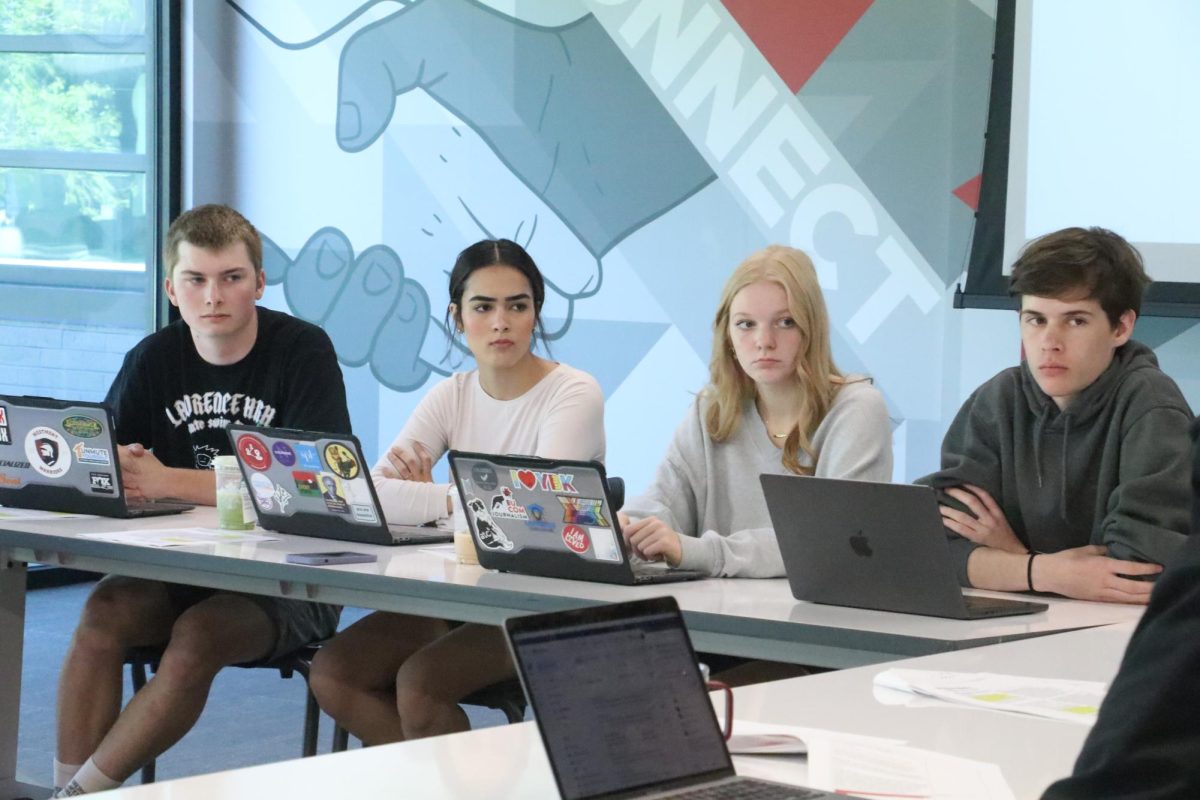Journalism editors asked USD 497 school board members serving on the district’s policy committee today to better protect student journalism and overall student privacy rights.
Students suggested policy changes relating to First Amendment free press protections, Fourth Amendment protections against unreasonable searches and copyright. The meeting follows a recent initiative by four editors to disband the use of Gaggle, AI-driven student surveillance software, for journalism students in USD 497. On Friday, the students also raised additional concerns about Gaggle’s broader use and said change was needed to protect students from future technology shifts.

“Gaggle is clearly such a quick solution that was put in so quickly, we also feel that other solutions might be put into place very quickly with new AI technology and things of that nature,” said senior Morgan Salisbury, who has been working on the issue. “So we think it’s really important to make a policy and revise existing policies that clarify that journalism is clearly protected by the school board and that this kind of thing won’t happen again.”
Gaggle, which was implemented in November, claims to help prevent self-harm and suicide by detecting when students are writing about sensitive topics on school accounts. It also scans for images with nudity.
The students — seniors Jack Tell, Maya Smith, Natasha Torkzaban and Salisbury — met with board members Kelly Jones and Anne Costello, as well as Principal Quentin Rials. The meeting followed the district’s agreement to remove journalism students from monitoring by Gaggle. That change went into effect Friday morning, and staff members plan to test the solution next week.
“I’m happy we’re moving in a positive direction and am proud of our students for advocating for themselves,” journalism adviser Barbara Tholen said.
The efforts followed months of advocacy by students who said the software violated the First Amendment by exposing their unpublished work. Their efforts were detailed in an article by The Lawrence Times yesterday.

“This has been going on for over four months, I think five months now,” Salisbury said. “It took a lot of effort and a lot of determination and resilience.”
The students came prepared with detailed suggestions for changes to current policies.
“When we draft a policy we have to do a crosswalk, and you’ve essentially done that for us,” said Jones, who is also the board president. “This is really impressive work”
Many of the changes focused on protecting the work of student journalists. Current policy already mentions many provisions of the Kansas Student Publications Act. But students sought to include references to the Kansas Shield Law as well as the federal Privacy Protection Act of 1980 — both of which protect the reporting process from government monitoring.
“The current policy, it only addresses the responsibilities of students, and it doesn’t address any responsibilities of the government or the district,” Tell said. “These are often important in any free press discussion and they are really often misunderstood.”
Students continued by raising issues with the district’s Acceptable Use Policy, which students must sign to use school devices. Here, their push for change extended to the overall student body. Torkzaban expressed concern that use of Gaggle violates Fourth Amendment protections against unreasonable search and seizure by the government.
“We would like parents to be able to opt their children out of Gaggle without running into an equity issue of students not being able to receive district devices,” Torkzaban said.
The students also said district policy as well as Gaggle procedures violate copyright law. Current policies claim district ownership of student content created on district-owned devices” or accounts.
“Students aren’t district employees, so the district can’t make any ownership claims to student work,” Tell said. “Also note that Gaggle has led to the taking and storing of images that don’t violate any school rules or meet any standards for libel, obscenity or invasion of privacy and has violated the copyright of those images by taking, storing them elsewhere and sending them to third parties for review.”
Jones noted that the district also planned to discuss policy issues around AI in response to a request from Lawrence Virtual School students. She cautioned that policy changes take time.
Costello said hearing multiple perspectives will be essential.
“I’ve always been a big believer in the more people from different backgrounds that you can get to come together, the better the outcome will be,” she said.
While no decisions were made, Salisbury said the meeting was productive.
“I think that was definitely one of the more positive meetings we’ve had with the district,” Salisbury said. “I think it’s really refreshing to have a meeting where it’s clear that you’re being taken seriously and there’s no derogatory or demeaning comments.”
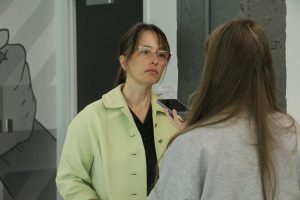
Smith said their efforts show that adults should never assume students are ill informed.
“If you go into a meeting, knowing almost more than you need to know, and you present yourself in a professional way that you want to be taken seriously, you will be taken seriously,” Smith said. “It’s not a bad thing to speak up for something that you think is wrong — even if no one else is talking about that or sees it as a problem.”
Torkzaban says continuing to push for change has been necessary to ensure the rights of both student journalists and the student body.
“Being able to speak up for ourselves and not just roll over every time someone tells us something is a prime example of why student journalists matter and why we have to know our rights and where we stand in society,” she said.
This story was originally published on The Budget on April 19, 2024.


